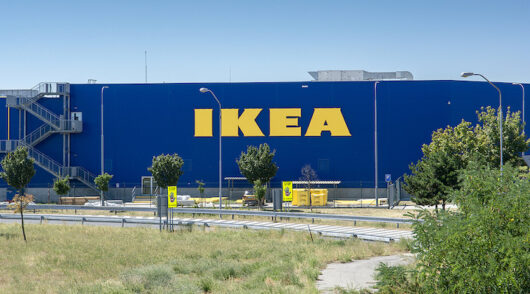The green shoots of recovery are beginning to establish themselves at Tesco, as it ushers in its second consecutive quarter of positive like-for-like growth.
UK like-for-like sales were up 0.3 per cent in the 13 weeks to May 28, while sales for the group as a whole, including Ireland, mainland Europe and Asia, rose 0.9 per cent.
Like rival, Sainsbury’s, Tesco was keen to emphasise that continued deflation has meant that the modest growth this quarter belies a more substantial increase in volumes and transactions (up 2.2 per cent and 1.7 per cent respectively). Unlike Sainsbury’s though, Tesco can now lay claim to sustained momentum in its turnaround, with the former witnessing like-for-likes slip back into negative territory in its own first quarter.
With rebuilding trust at the forefront of Tesco’s project to regain lost custom, much was made of the fact that its new ‘Farms’ fresh food brands are named for non-existent farms and give the impression of having been sourced in the UK, despite many of them being sourced from overseas. While the naming controversy provoked something of a media storm, this may have been lost on customers, with Tesco claiming that over two-thirds have bought from the new ranges. After all, the strategy is similar to that employed by Aldi and suggests that for most shoppers, the perception of provenance is sufficient, provided the products are perceived to be good value.
The ‘Farms’ brands represent a rare extension of Tesco’s offer, during what has largely been a process of stripping its proposition back to the core under Dave Lewis. More fat has been trimmed this quarter, with the disposals of Dobbies and Kipa, while it was announced today that the loss-making Harris & Hoole coffee chain is next in line for the chop, to be sold to Cafe Nero.
Phil Clarke’s doomed strategy of diversification is rapidly being swept aside and instead a more focussed grocery proposition is emerging. The confusing array of couponing and promotions that alienated customers in the past, is being replaced by more stable, low prices and focussed offers on key lines. Meanwhile, a reduction in the bloated SKU count, and improvements in availability, has helped to improve reliability.
Cosmetic changes to Tesco’s proposition like the rebranding of its fresh food ranges may draw the ire of commentators, but it is the profound changes to Tesco’s proposition and strategy that are proving to be pivotal in restoring that crucial line of trust between the grocery giant and its customers.
- David Alexander is a senior analyst at Verdict Retail.






